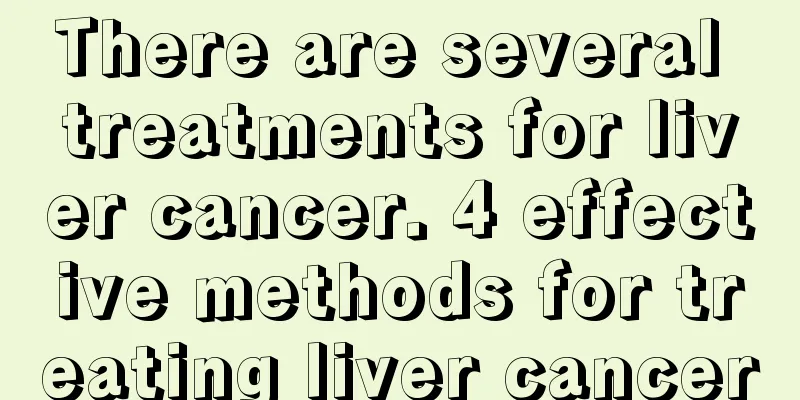How to treat uremia and hyperphosphatemia?

|
Many patients with uremia will develop hyperphosphatemia within six months. If not treated properly, it will pose a great threat to the health of the body. When both uremia and hyperphosphatemia occur, patients should first control their phosphorus intake in their diet and eat more protein-rich ingredients, such as egg whites, which are low in phosphorus and high in protein. Treatment of hyperphosphatemia in uremic patients (1) Control dietary phosphorus intake (limited to 800-1000 mg/d). Since protein is mainly combined with organic phosphorus and distributed in cells, the blood phosphorus content of protein-rich foods is also relatively high. Since the protein intake of uremia patients increases after dialysis, it is easy to cause hyperphosphatemia. Secondly, the absorption rate of plant protein phosphorus is lower than that of animal protein phosphorus. Studies have found that excessive restriction of phosphorus intake can lead to malnutrition and increase mortality. The intake of protein and phosphorus must be balanced, so it is more appropriate to use the phosphorus (mg)/protein (g) ratio to measure the phosphorus load in the diet. You should try to consume foods that are low in phosphorus and rich in protein, such as egg protein, and try to consume less foods that are high in phosphorus and low in protein. In addition, phosphorus is one of the main components of food additives, and patients with uremia should limit the intake of phosphorus-containing additives. (2) Increasing the number of dialysis sessions or extending the dialysis time can help remove phosphorus. Since phosphorus is mainly distributed in cells and tissues, the transport rate from inside cells to outside cells is very slow, and long-term dialysis is often required to achieve the purpose of phosphorus reduction. (3) The use of phosphate binders mainly reduces blood phosphorus levels by reducing gastrointestinal phosphorus absorption. The phosphate binders currently used in clinical practice mainly include calcium-containing phosphate binders, aluminum-containing phosphate binders, and non-calcium and non-aluminum phosphate binders. For patients with uremia on dialysis, if dietary phosphorus restriction and adequate dialysis still cannot control blood phosphorus levels, and blood calcium levels are within the normal range or reduced, it is recommended to use calcium-containing phosphate binders. If hypercalcemia persists or recurs, it is recommended to use non-calcium and non-aluminum phosphate binders. Precautions for hyperphosphatemia in patients with uremia To prevent potential hypercalcemia, it is recommended that daily intake of elemental calcium from calcium-containing phosphate binders should not exceed 1500 mg, and the total daily intake of elemental calcium should be less than 2000 mg. Aluminum-phosphorus binders are rarely used clinically due to the risk of aluminum poisoning, and long-term use should be avoided. The non-calcium and non-aluminum phosphate binders mainly include sevelamer and lanthanum carbonate. They have received widespread attention because they have no effect on blood calcium and parathyroid hormone, and can even reduce or delay vascular calcification. For uremic patients with persistent high phosphorus and vascular calcification, the use of non-calcium and non-aluminum phosphate binders is the best choice. It is recommended that phosphate binders should be taken with meals, should be chewed to achieve the best phosphorus-lowering effect, and the dosage should be adjusted according to the amount of phosphorus-containing food consumed. |
Recommend
Treatment of otitis media after radiotherapy for nasopharyngeal carcinoma
Nasopharyngeal carcinoma is mainly poorly differe...
Endometrial cancer dietary taboos
What are the dietary taboos for endometrial cance...
How to wake up a person who is in a coma due to cerebral infarction
Coma is a very common phenomenon for patients wit...
What is the cause of lung cancer
In recent years, lung cancer has become one of th...
What to do if an 8-year-old child has bad breath
For eight-year-old children, they are in the peri...
Feeling urethral pain after nocturnal emission
Some people feel special pain in the penis area a...
How to make your own cervical pillow
The pain caused by cervical stiff neck is very se...
Which department should I go to for liver cancer
Which department should I go to for liver cancer?...
What is the function of vaccine refrigerator
A vaccine refrigerator is actually a place where ...
Abdominal colic syndrome, mainly has these manifestations
Abdominal colic is generally pain in the upper ab...
The root cause of psychological fragility
With the continuous improvement of living standar...
What are the differences between mosquito and flea bites?
The existence of mosquitoes in life is a problem ...
Can chickenpox pits be healed? The most effective way to repair them
The marks left by chickenpox will never go away, ...
Are there any sequelae to sprained ligaments of the foot?
In life, many people have experienced sprained an...
Can I drink tea if I have anemia?
The history of Chinese tea ceremony is very long....









